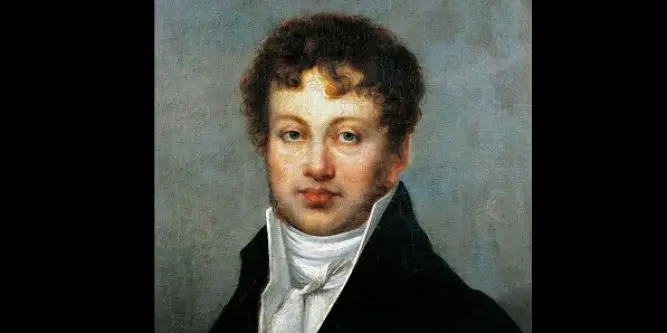
😉 Hello dear reader! Thank you for choosing the article “André Marie Ampere: A Brief Biography” on this site!
André Marie Ampere is called the father of classical electrodynamics. This scientist introduced into physics such concepts as “current strength”, “voltage”, “direction of current”, “cybernetics” and “galvanometer”. The scientist owns the idea of the galvanometer itself, which is based on the action of the current on the arrow. The unit of current, the ampere, is named after him.
Biography of Andre Marie Ampere
Ampere was born on January 22, 1775 in Lyon in the family of a wealthy silk merchant.
Andre never went to school, did not pass a single exam in his entire life. His father’s library helped him get an education. Young Ampere mastered reading early and read everything. These were poems, novels, historical and philosophical writings.
But the most important book of his childhood was the encyclopedia of Diderot and d’Alembert. He read it completely. He showed an early inclination for science: at thirteen years old, he owned differential calculus. Studied Latin, Greek and Italian.
Parents invited a mathematics teacher to Andre, but he refused to teach him: the student knew more than the teacher!
When Ampere was eighteen years old, his father was executed during the French Revolution. All property was confiscated. This event deeply shocked Andre, for almost a year he was in a state of deep depression. From grief, he almost lost his mind.
From lack of money, the young man had to earn his living by private lessons. He then taught physics and chemistry at the Bourque-en-Bresse school.
In 1803 André was appointed teacher of mathematics and astronomy at Lyceum Lyon. A year later, he was offered a tutor position at the Ecole Polytechnique in Paris. In the same place, in 1807, he became a professor and worked until 1824. Then he served as professor of experimental physics at the College de France.
In 1830 he was elected an honorary member of the St. Petersburg Academy of Sciences. By the end of his life, the physicist became interested in geology and biology.
Scientific activity of Ampere
- 1820 – proposed to use electromagnetic phenomena for signal transmission;
- 1822 – discovered the magnetic effect of a solenoid (coil with current), from which the idea of the equivalence of a solenoid to a permanent magnet followed;
- 1829 – invented the switchboard and the electromagnetic telegraph;
- 1834-1843 – in his fundamental work “Experience in the Philosophy of Sciences” defined cybernetics as the science of government, which should provide citizens with the benefits of peace;
- in 1834 – introduced the term “cybernetics” into scientific circulation;
- developed a classification of the science of his time, set out in the work “Experience in the Philosophy of Sciences.”
Personal life
In a difficult period of life (the death of his father and depression), Andre was saved by love. He fell in love at first sight. In 1797, the engagement took place with his chosen one Julie Carron, a year later they got married. The only son, Jean-Jacques Ampere (1800-1864), became a renowned philologist. Ampere named his son after his father.
Soon a tragedy struck in a young family – Julie fell ill with cancer and died in 1803. Three years later, Andre married again, but the unsuccessful marriage soon fell apart.
The brilliant scientist was absent-minded and paid little attention to his appearance. He had a habit of telling people what he thought of them. But he always remained a sympathetic and cheerful person. He was humble, gullible, and short-sighted.
Ampere died of pneumonia on June 10, 1836. It happened in Marseilles on the way south, where he hoped to improve his health. In 1869, his remains were transported from Marseilles to Paris at the Montmartre cemetery. On his gravestone are carved the words: “He was as kind and as simple as he was great.”
😉 Friends, please leave your feedback on the article “Andre Marie Ampere: A Brief Biography”. Share this information on social media.










